To submit your speaker’s profile, please fill out this form.
| Name | University/Institution | Bio | Session(s) | |
|---|---|---|---|---|
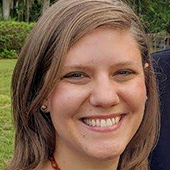 | Abigail Moreshead | University of Central Florida | Abigail Moreshead is a PhD student in the University of Central Florida's Texts & Technology program, specializing in digital humanities. Her research interests are digital archival practices; hierarchies of reading and reading technologies; and college literature pedagogy. Abigail earned an MA in Literary, Cultural, and Textual studies at UCF while serving for two years as assistant editor of The Faulkner Journal. Abigail also teaches literature and writing courses for UCF's English department and is currently an intern with the Johnson's Dictionary Online project (new beta site) (legacy site). | Session 1.3 (1:15-3:00 PDT): Project Showcase |
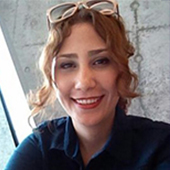 | Ahlam Bavi | University of British Columbia-Okanagan | Ahlam Bavi is a conceptual artist, industrial designer, and a digital humanist. She has studied and researched at the University of Lucerne, Switzerland, and the University of Calgary. She always works and researches multicultural projects. Now she is a PhD student who collaborates with museums to improve the experience of low vision visitors and to re-imagine artworks through digital technology. | Session 3.1 (9:30-11:00 PDT): Theories of Digital Collaboration |
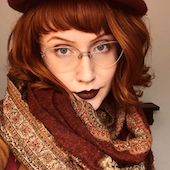 | Alvionne Karpinski | University of British Columbia-Vancouver | I am a first-year PhD student in the School of Information at the University of British Columbia, focusing on medieval manuscript design and methods of authenticating and detecting forgeries within the rare books field. My past research has focused specifically on the relationship between the material design of 13th century medical manuscripts produced for use in the earliest universities and the scholastic context in which these manuscripts were anticipated to be used. | Session 1.3 (1:15-3:00 PDT): Project Showcase |
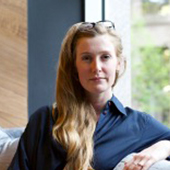 | Alyssa Arbuckle | University of Victoria | Alyssa Arbuckle is the Associate Director of the Electronic Textual Cultures Lab at UVic, where she serves as Co-Facilitator of the Implementing New Knowledge Environments Partnership Connection cluster and is a member of the Digital Humanities Summer Institute Directorial Group and Operational Team. Alyssa is also an Interdisciplinary PhD Candidate studying open social scholarship and its implementation. | Session 3.1 (9:30-11:00 PDT): Theories of Digital Collaboration |
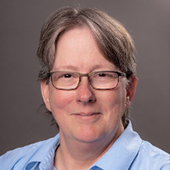 | Amy Larner Giroux | University of Central Florida | Amy Larner Giroux, PhD, is Associate Director of the Center for Humanities and Digital Research at UCF. Her research involves the contact zone between humans and technology within the intersections of history and learning. By leveraging technologies such as drone photogrammetry and 360̊ imagery to capture physical aspects of spaces and virtual and augmented reality to engage audiences, she works with undergraduate computer science students to develop software to assist faculty projects through automating processes such as dictionary word image cropping and cemetery headstone mapping. | Session 1.3 (1:15-3:00 PDT): Project Showcase |
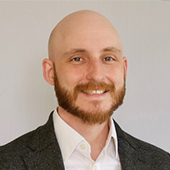 | Andrew Brown | Dalhousie University | Andrew S. Brown’s research and teaching focus on the literature, politics, and culture of early modern England (ca. 1550-1700). He was previously the Council on Library and Information Resources (CLIR) Digital Humanities Network Postdoctoral Fellow at the Jackman Humanities Institute, University of Toronto. His current work in the digital humanities uses geographic information systems (GIS) and digital corpus linguistics tools to study cultural representations of urban infrastructure. | Session 2.4 (2:45-4:45 PDT): Collaboration Roundtable |
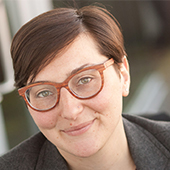 | Anita Fata | University of British Columbia-Vancouver | Anita Fata is the current Student Librarian at the Making Research Accessible initiative. She contributes to the initiative by making materials accessible and searchable from the Downtown Eastside Research Access Portal (DTES RAP) via a special digital collection through UBC’s open access digital repository, cIRcle. Anita is currently pursuing her MLIS while representing students as a Co-President of LASSA (Library and Archival Studies Student Association) and volunteering as a Coordinator at Out on the Shelves Library. | Session 1.3 (1:15-3:00 PDT): Project Showcase |
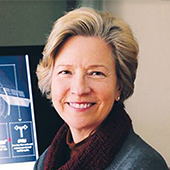 | Ann Hill Duin | University of Ontario Institute of Technology | Ann Hill Duin, PhD, is a Professor of Writing Studies and Graduate-Professional Distinguished Teaching Professor at the University of Minnesota, USA, where her research focuses on digital literacy, analytics, collaboration, and writing futures. Her international collaboration includes research cluster leadership in the Digital Life Institute at Ontario Tech University. | Session 3.1 (9:30-11:00 PDT): Theories of Digital Collaboration |
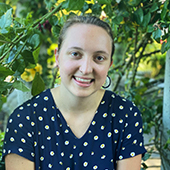 | Anna Nielsen | University of British Columbia-Vancouver | Anna Nielsen is soon to graduate from the University of British Columbia Faculty of Anthropology with a concentration in museum studies. Anna is pursuing a Master of Management from UBC’s Sauder School of Business and, concurrently, a Master of Museum Education. With 8 years of experience working in a myriad of positions within museums and institutions, notably the last 3 years at the Museum of Anthropology, she has found her passion for increasing accessibility to all forms of arts and culture. Most recently in developing the virtual exhibition Shadows Strings and Other Things with Dr. Levell. | Session 3.3 (1:45-3:15 PDT): Digital Exhibitions |
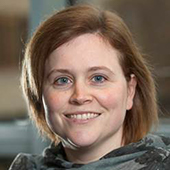 | Anouk Lang | University of Edinburgh | Anouk Lang is a Senior Lecturer in the Department of English Literature at the University of Edinburgh, where she teaches digital humanities and C20th and C21st literature. Her areas of specialisation include modernism beyond Anglo-America, reading, and applying approaches from data science to the study of culture. She is the editor of From Codex to Hypertext: Reading at the Turn of the Twenty-First Century. Her current project is a collection, co-edited with Gabriel Hankins and Simon Appleford, on the Digital Futures of Graduate Study in the Humanities. | Session 1.2 (11:00-12:15 PDT): Roundtable: The Data-Sitters Club: A Colloquial, Comprehensive, Collaborative Guide to Computational Text Analysis |
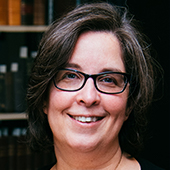 | Beth Young | University of Central Florida | Beth Rapp Young is the Principal Investigator and Director of the Johnson's Dictionary Online project. As associate professor of English, she has taught writing and linguistics courses, and served in various administrative roles, at the University of Central Florida since 1997. | Session 1.3 (1:15-3:00 PDT): Project Showcase |
 | Brett Eaton | University of British Columbia-Vancouver | Session 2.4 (2:45-4:45 PDT): Collaboration Roundtable | |
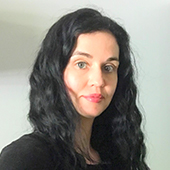 | Carmen Mathes | University of Regina | Carmen Mathes is an Assistant Professor of English at the University of Regina, Saskatchewan and co-PI on the Samuel Johnson’s Dictionary Project. She was previously an Assistant Professor at the University of Central Florida, Orlando, where she and Dr. Beth Rapp Young conceived and developed the SJD Project from the NEH grant proposal stage. Dr. Mathes's research and teaching span the Restoration to Romanticism, drawing connections between poetry and poetics; historically-situated theories of affect; and questions of aesthetics, ethics and politics. | Session 1.3 (1:15-3:00 PST): Project Showcase |
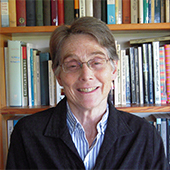 | Carole Gerson | Simon Fraser University | Carole Gerson (FRSC) is Prof Emerita in the English Dept at SFU. Co-editor of vol 3 (1918-80) of History of the Book in Canada, she has published extensively on Canada’s literary and cultural history with a focus on early Canadian women writers. Her book, Canadian Women in Print, 1750-1918 (2010), won the Gabrielle Roy Prize for Canadian criticism. In 2013 she received the Marie Tremaine medal from the Bibliographical Society of Canada. With co-author Peggy Lynn Kelly, she has just published Hearing More Voices: English-Canadian Women in Print and on the Air, 1914-1960 (Ottawa: Tecumseh). | Session 1.3 (1:15-3:00 PDT): Project Showcase |
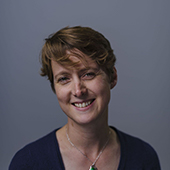 | Charlotte Tupman | University of Exeter | Charlotte Tupman is Research Fellow in Digital Humanities at the University of Exeter. She works on the application of machine learning to Latin Epigraphy, and as one of the authors of the EpiDoc Guidelines she is involved in the collaborative development of standards for encoding and publishing inscriptions and papyri. | Session 3.1 (9:30-11:00 PDT): Theories of Digital Collaboration |
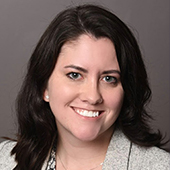 | Christina Hilburger | State University of New York at Fredonia | Christina Hilburger (she/her) is the Research and Information Literacy Services Librarian at the State University of New York at Fredonia, where she identifies ways to support the research and learning needs of students and faculty. | Session 3.3 (1:45-3:15 PDT): Digital Exhibitions |
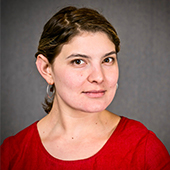 | Claire Williams | University of British Columbia-Vancouver | Claire Williams works as a Forestry Archivist at the University of British Columbia’s Rare Books and Special Collections (RBSC) Library on the Vancouver campus, located on the traditional, ancestral, and unceded territory of the Musqueam people. As an archivist she works to preserve and make accessible the history of forests and other natural resources in British Columbia. She is particularly interested in the intersection of archival materials and current issues facing society, and engages with practices from the digital humanities to support mobilizing archival records for the present day. | Session 1.4 (3:15-4:30 PDT): Geospatial Discovery and Data |
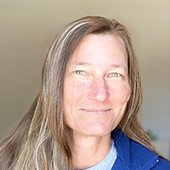 | Connie Harper | University of Central Florida | Connie Harper is the lead developer for the Samuel Johnson's Online Dictionary project and is responsible for the database design and implementation of the web site. She has worked on various projects as a Software Developer at UCF, since 2009. | Session 1.3 (1:15-3:00 PDT): Project Showcase |
 | Courteney Durand | University of British Columbia-Vancouver | Session 2.2 (11:00-12:15 PDT): Collaboration Works Two Ways: Data Sovereignty and Representation in Indigenous-focussed Digital Humanities | |
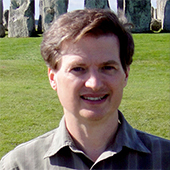 | Craig Sapp | Stanford University | Craig Sapp is a researcher at the Packard Humanities Institute/Center for Computer Assisted Research in Humanities, as well as an adjunct professor at Stanford University. He has a Ph.D. in Computer-based music and acoustics from Stanford, a Master’s in composition and piano performance as well as an undergraduate degree in music and physics from the University of Virginia. He has also taught at Peabody Conservatory in Baltimore, Maryland, and worked on computational performance analysis of Chopin's mazurkas at Royal Holloway, University of London with Nicholas Cook. | Session 3.2 (11:15-12:45 PDT): Collaborative Building of Digital Tools for Music Scholarship |
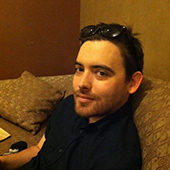 | Daniel Shanahan | Ohio State University | Daniel Shanahan is an Associate Professor at Ohio State. | Session 3.2 (11:15-12:45 PDT): Collaborative Building of Digital Tools for Music Scholarship |
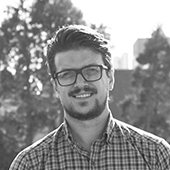 | David Gaertner | University of British Columbia-Vancouver | David Gaertner is a settler scholar of German descent and an instructor in the First Nations and Indigenous Studies Program at the University of British Columbia, where he specializes in digital storytelling. He is also a co-editor of Read, Listen, Tell: Indigenous Stories from Turtle Island and the author of The Theatre of Regret: Literature, Art, and the Politics of Reconciliation in Canada. | Session 2.2 (11:00-12:15 PDT): Collaboration Works Two Ways: Data Sovereignty and Representation in Indigenous-focussed Digital Humanities |
 | Davis McKenzie | Toχʷoχʷ [Becoming Clear] Communications | Session 2.3 (1:15-2:30 PDT): Relationality, Respect, and Humility on the Internet: Digital Space as Indigenous Territory | |
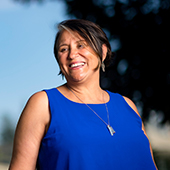 | Deanna Reder | Simon Fraser University | Deanna Reder (Cree-Metis) is Chair of the Department of Indigenous Studies and a member of the Department of English at Simon Fraser University. She is Principal Investigator on a Social Sciences and Humanities Research Council (SSHRC) funded project called "The People and the Text: Indigenous Writing in Northern North America up to 1992". She is one of the founding members of the Indigenous Literary Studies Association (ILSA) and the Indigenous Editors Association and Co-Chair of the Indigenous Voices Awards. | Session 2.1 (9:30-10:45 PDT): Using DH Tools to Examine Neglected Indigenous Texts: Edward Ahenakew’s Old Keyam |
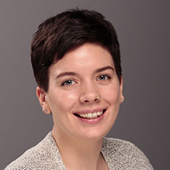 | Donna Langille | University of British Columbia-Okanagan | Donna Langille (she/her) is Community Engagement Librarian at the University of British Columbia Okanagan campus. She lives and works as an uninvited guest on the unceded, ancestral, and traditional territory of the Syilx Okanagan peoples. Her professional interests include open education and open/public/digital scholarship. | Session 3.3 (1:45-3:15 PDT): Digital Exhibitions |
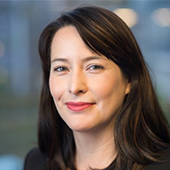 | Dory Nason | University of British Columbia-Vancouver | Dory Nason (Ph.D. University of California, Berkeley) is Anishinaabe and an enrolled member of the Leech Lake Band of the Minnesota Chippewa Tribe. Her areas of research include contemporary Indigenous Feminisms and related Native women’s intellectual history and literature. At UBC, Professor Nason teaches Indigenous Literature and Criticism; Indigenous Theory and Research Methods; and Indigenous Feminisms. | Session 2.1 (9:30-10:45 PDT): Using DH Tools to Examine Neglected Indigenous Texts: Edward Ahenakew’s Old Keyam |
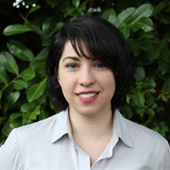 | Eka Grguric | University of British Columbia-Vancouver | Ekatarina Grguric is the Digital Scholarship Librarian. She was the User Experience and Digital Technologies Library at McGill University Library and a librarian at North Carolina State University Libraries where she supported open science initiatives. Her approach to her work is user centered, data driven, and collaborative. | Session 1.4 (3:15-4:30 PDT): Geospatial Discovery and Data Session 3.3 (1:45-3:15 PDT): Digital Exhibitions |
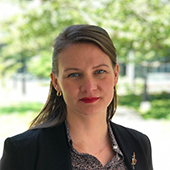 | Elizabeth Parke | University of Toronto | Elizabeth Parke is a scholar of contemporary Chinese art, visual culture, and urbanism. Her first book project examines infrastructure building in Beijing from 1978-2012 through the lens of artists' practices, while my second looks at luxury cars in Greater China as markers of wealth, aspirations, and corruption. Her DH interests are located at the intersection of AR and VR as well as building institutional DH support at large research institutions. | Session 2.4 (2:45-4:45 PDT): Collaboration Roundtable |
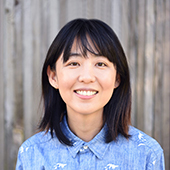 | Ellen Chang | University of Washington | Ellen Chang is a Ph.D. candidate in Cinema & Media Studies at the U of Washington, and is writing a dissertation, entitled "Unseen Sounds, Unheard Images: Daomin, Aesthetic Decolonization, and Contemporary Moving Images in Taiwan," on the transactional encounter between contemporary Taiwanese video art/installation, cinema, and popular culture as processes of aesthetic decolonization. She is currently the Collaborative Learning and Interdisciplinary Pedagogy Fellow at UW's Department of Comparative History of Ideas and the managing editor for Feminist Media Histories. | Session 3.3 (1:45-3:15 PDT): Digital Exhibitions |
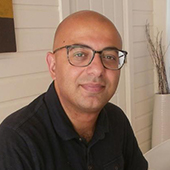 | Emiliano Ricciardi | University of Massachusetts Amherst | Emiliano Ricciardi is an Assistant Professor of Music History at UMass Amherst. He holds a PhD from Stanford University and is the recipient of fellowships from the Mellon Foundation/ACLS and Harvard University. He is the director of the Tasso in Music Project, a digital edition of the musical settings of Tasso's poetry, which in 2016 was awarded a 3-year NEH Scholarly Editions and Translations Grant. His work on Tasso and music includes articles in journals such as Early Music and The Journal of Musicology as well as a forthcoming monograph and an edited collection. | Session 3.2 (11:15-12:45 PDT): Collaborative Building of Digital Tools for Music Scholarship |
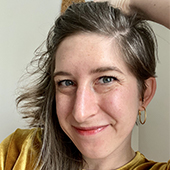 | Emily Jean Leischner | University of British Columbia-Vancouver | Emily Jean Leischner worked as the Community-Based Research Assistant at the UBC Learning Exchange to support the content and development of the Downtown Eastside Research Access Portal (DTES RAP) between May 2019 and August 2020, focusing on the ethical and practical considerations of the Directory & Project Pages. She is a settler scholar who studies museums using community-based methods, and is interested in how digital technologies sharing Indigenous collections can be designed and maintained to prioritize First Nations’ communities. | Session 1.3 (1:15-3:00 PDT): Project Showcase |
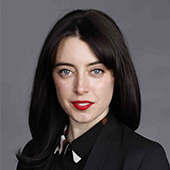 | Emily Murphy | University of British Columbia-Okanagan | Emily Christina Murphy is Assistant Professor, Digital Humanities at UBC-Okanagan. Her work on DH pedagogy appears in Digital Humanities Quarterly (2017) and Doing More Digital Humanities (2020). She is project leader of DH projects Modernist Remediations, and her current book project focuses on empathy and adaptation in contemporary media. | Session 3.1 (9:30-11:00 PDT): Theories of Digital Collaboration Session 4.1 (9:30-11:00 PDT): Textual Collaborations |
 | Erik Kwakkel | University of British Columbia-Vancouver | Erik Kwakkel is Professor at the iSchool (Library, Archival and Information Studies), The University of British Columbia, where he teaches the History of the Book. His research interests are related to the script and material design of medieval manuscripts. He has published several monographs and edited volumes devoted the culture of the medieval book, including, most recently, Medicine at Monte Cassino: Constantine the African and the Oldest Manuscript of his Pantegni (with Francis Newton; Brepols 2020). | Session 1.3 (1:15-3:00 PDT): Project Showcase |
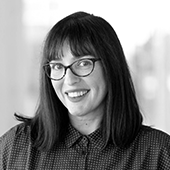 | Erika Balcombe | University of British Columbia-Vancouver | Erika Balcombe is a design educator at the Wilson School of Design at Kwantlen Polytechnic University and a PhD student at UBC. She aims to bridge the disciplines of anthropology and design in her work with students, Indigenous communities, and museums such as the Jewish Museum and Archives of British Columbia, the Museum of Vancouver and, most recently, the Museum of Anthropology. | Session 3.3 (1:45-3:15 PDT): Digital Exhibitions |
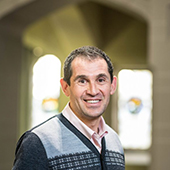 | Eugene Barsky | University of British Columbia-Vancouver | Eugene Barsky is the Head of Research Commons at UBC. Eugene participates in building the Canadian Federated Research Data Repository service (FRDR), and collaborates with Research Data Canada (RDC) and the European Union (OpenAIRE). Eugene is the lead Principal Investigator for the national Geodisy project. He published more than 25 peer-reviewed papers and presented at more than 65 conferences. Eugene is an adjunct professor at the iSchool at UBC, teaching the course in research data management, and is one of the founders of the Pacific Northwest data curators group. | Session 1.4 (3:15-4:30 PDT): Geospatial Discovery and Data |
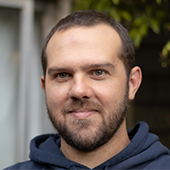 | Evan Thornberry | University of British Columbia-Vancouver | Evan Thornberry is the Geographic Information Systems (GIS) Librarian at the University of British Columbia (UBC) Library where he supports teaching, learning, and research with geospatial information and technology. In his work, he coordinates efforts to improve existing resources for maps, atlases, and geodata collections, as well as library services to better equip a growing base of GIS users. | Session 1.4 (3:15-4:30 PDT): Geospatial Discovery and Data Session 3.3 (1:45-3:15 PDT): Digital Exhibitions |
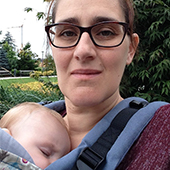 | Ève Poudrier | University of British Columbia-Vancouver | Ève Poudrier is Assistant Professor at the School of Music of the University of British Columbia where she teaches courses in tonal harmony, Schenkerian analysis, music psychology and the cognition of rhythm, and is principal investigator of the Rhythm Cognition and Computation Project. She holds a Ph.D. in music theory from The Graduate Center of the City University of New York. She has presented her work in interdisciplinary conferences in North-America, Europe and the Middle East, and her research has been published in Music Perception and Empirical Musicology Review. | Session 3.2 (11:15-12:45 PDT): Collaborative Building of Digital Tools for Music Scholarship |
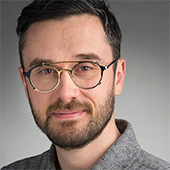 | Frédérik Lesage | Simon Fraser University | Frédérik Lesage is an Associate Professor in information and communication technologies in Simon Fraser University’s School of Communication. Dr. Lesage’s research explores the interplay between digital media and practices of cultural production. His most recent investigation centres on the design cultures of digital media and the mediatization of software skills. You can find his work published in academic journals like Convergence, Fibreculture, and the European Journal of Cultural Studies. | Session 2.4 (2:45-4:45 PDT): Collaboration Roundtable |
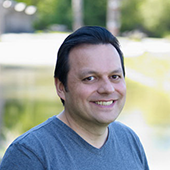 | Gerry Lawson | University of British Columbia-Vancouver | Gerry Lawson is a proud member of the Heiltsuk First Nation and manages the Oral History and Language Lab at the UBC Museum of Anthropology. With over 15 years in the field of Information Management and Heritage Digitization, he works to develop practical, scalable resources for Indigenous cultural heritage preservation, and to decolonize information practices. Gerry also acts as the Technology Lead for the innovative UBC Indigitization Program and sits on the Board of Directors for the First Peoples’ Cultural Council. | Session 2.2 (11:00-12:15 PDT): Collaboration Works Two Ways: Data Sovereignty and Representation in Indigenous-focussed Digital Humanities |
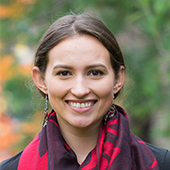 | Haley Seven Deers | University of British Columbia-Vancouver | Haley Seven Deers is a graduate student and teaching assistant at the University of British Columbia, pursuing a Master of Arts in History. Her research is focused on the history of science, medicine and technology and the history of women and gender. As an undergraduate research associate she worked on the Negative Heritage Project. The goal of this project is to create a comprehensive catalogue of global negative heritage sites using digital mapping. Haley is keen to continue to engage with the digital humanities and heritage studies in connection with her graduate research. | Session 4.2 (11:15-12:30 PDT): Spatial Digital Humanities |
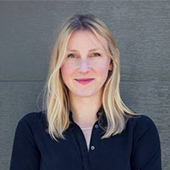 | Hannah Turner | University of British Columbia-Vancouver | Hannah Turner is a critical information studies scholar at the iSchool who investigates the connection between documentation, culture, and technology. She is interested in how new digital technologies are used to represent tangible and intangible cultural heritage. With several 3D digitization research and curatorial projects, she questions how objects and belongings are actively shaped by those who create and manipulate their digital representations. She has published on the politics of digital access, the decolonization of museum databases, learning with 3D printing, and the organization of knowledge in museums. | Session 2.3 (1:15-2:30 PDT): Relationality, Respect, and Humility on the Internet: Digital Space as Indigenous Territory |
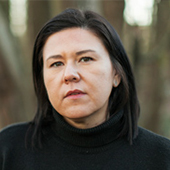 | Harmony Johnson | Independent | Harmony Johnson is from the Tla’amin First Nation. She has more than 15 years of experience in executive and senior roles in health and in First Nations policy, intergovernmental relations, and self-governance, including Director of Policy at the First Nations Summit, A/CEO of the First Nations Forestry Council, and progressively senior roles within the First Nations Health Authority. Harmony runs an independent consulting business and teaches Indigenous health within the Masters of Health Administration program at the University of British Columbia. | Session 2.3 (1:15-2:30 PDT): Relationality, Respect, and Humility on the Internet: Digital Space as Indigenous Territory |
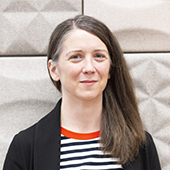 | Heather de Forest | Simon Fraser University | Heather De Forest leads the Community Scholars Program, an initiative that provides staff from BC nonprofits with free access to a suite of paywalled journals and ebooks. She has recently completed a certificate in knowledge mobilization and is interested in human centered design processes. | Session 1.3 (1:15-3:00 PDT): Project Showcase |
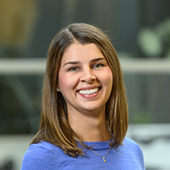 | Heather Holroyd | University of British Columbia-Vancouver | Heather Holroyd is the Community-Based Research Coordinator at the UBC Learning Exchange, where she works to build and support research and knowledge exchange related connections between university campus members, residents, and community organizations of an inner city neighbourhood in Vancouver, Canada. As part of this work, Heather works closely with the partners involved in the Making Research Accessible initiative (MRAi) to support design and content development activities related to the Downtown Eastside Research Access Portal (DTES RAP). | Session 1.3 (1:15-3:00 PDT): Project Showcase |
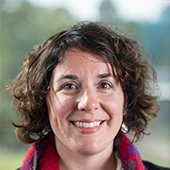 | Heather O'Brien | University of British Columbia-Vancouver | Heather O'Brien is the lead investigator of the STOREE (Supporting Transparent and Open Research Engagement and Exchange) Project. STOREE is a SSHRC funded collaboration of the UBC Learning Exchange, UBC Library, SFU Library and BC Centre on Substance Use. STOREE aims to: 1) Leverage existing initiatives to improve access to research; 2) Design and deploy accessible genres for research dissemination to increase research visibility and utility; and 3) Train next-generation researchers, librarians and literacy educators to support transparent, reciprocal research practices. | Session 1.3 (1:15-3:00 PDT): Project Showcase |
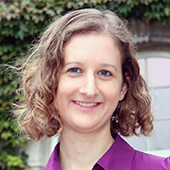 | Heidi Tworek | University of British Columbia-Vancouver | Heidi Tworek is Associate Professor of International History and Public Policy at UBC Vancouver. She is the author of the multi-award-winning News from Germany: The Competition to Control World Communications, 1900-1945 (Harvard University Press, 2019). She has co-edited two books and written many articles on the history and public policy around communications and media. She is a non-resident fellow at the German Marshall Fund of the United States and the Canadian Global Affairs Institute. | Session 1.2 (11:00-12:15 PDT): Roundtable: The Data-Sitters Club: A Colloquial, Comprehensive, Collaborative Guide to Computational Text Analysis |
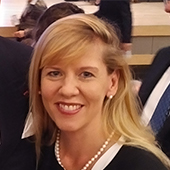 | Isabel Pedersen | University of Ontario Institute of Technology | Isabel Pedersen, PhD, is a Professor of Communication and Digital Media Studies at Ontario Tech University. She is the founding Director of the Digital Life Institute. With her collaborators, she explores embodied computing within global technology shifts including the adoption of Artificial Intelligence, brain interfaces, and humanoid robots. | Session 3.1 (9:30-11:00 PDT): Theories of Digital Collaboration |
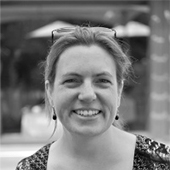 | Janelle Jenstad | University of Victoria | Janelle Jenstad is Associate Professor of English at the University of Victoria. She directs The Map of Early Modern London (MoEML) and is PI on Linked Early Modern Drama Online. With Jennifer Roberts-Smith and Mark Kaethler, she co-edited Shakespeare’s Language in Digital Media (Routledge). Her essays and book chapters have appeared in Shakespeare Bulletin, Elizabethan Theatre, EMLS, JMEMS, DHQ and other venues. For a full list, see janellejenstad.com. | Session 4.1 (9:30-11:00 PDT): Textual Collaborations |
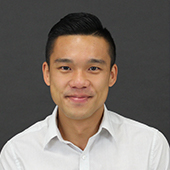 | Jason Tham | University of Ontario Institute of Technology | Jason Tham, PhD, is an Assistant Professor of Technical Communication and Rhetoric at Texas Tech University, USA, where he teaches user experience research and digital rhetoric. He is a research partner at the Digital Life Institute at Ontario Tech University. | Session 3.1 (9:30-11:00 PDT): Theories of Digital Collaboration |
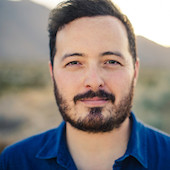 | Jeffrey Ansloos | University of Toronto | Dr. Ansloos’ research focuses on Indigenous health, social policy, and in particular suicide and suicide prevention. He also examines community-based and systems-level change processes needed to advance social and health equity within Canada, with a particular focus on Indigenous rights. Dr. Ansloos also researches the role of emergent technologies at the intersection of community mobilization and social change. | Session 2.2 (11:00-12:15 PDT): Collaboration Works Two Ways: Data Sovereignty and Representation in Indigenous-focussed Digital Humanities |
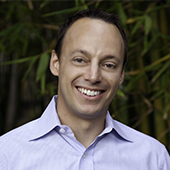 | Jesse Rodin | Stanford University | Jesse Rodin is Associate Professor of Music at Stanford University. A Guggenheim Fellow, he has published widely on late-medieval and Renaissance music. He directs the Josquin Research Project, a digital tool for exploring a large corpus of Renaissance music, and the vocal ensemble Cut Circle. Current projects include a double album of Johannes Ockeghem's songs (Musique en Wallonie) and a monograph that draws on digital analyses to explore how fifteenth-century polyphony happens in time (Cambridge University Press). | Session 3.2 (11:15-12:45 PDT): Collaborative Building of Digital Tools for Music Scholarship |
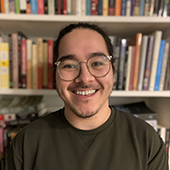 | Joey Takeda | Simon Fraser University | Joey Takeda is the User Interface Developer for the Digital Humanities Innovation Lab at Simon Fraser University. He has also worked as a developer and programmer on a variety of digital humanities projects at various institutions, including The Map of Early Modern London (UVic), Linked Early Modern Drama Online (UVic), and the Winnifred Eaton Archive (UBC). | Session 2.4 (2:45-4:45 PDT): Collaboration Roundtable Session 4.1 (9:30-11:00 PDT): Textual Collaborations |
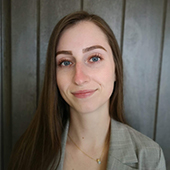 | Jordanna Marshall | University of British Columbia-Vancouver | Jordanna Marshall is a graduate student in the Master’s in Anthropology program at the University of British Columbia. She is employed as a Graduate Research Assistant on the Forests and Oceans for the Future project, headed by professor Charles Menzies. She is passionate about researching human-animal relationships and anthropogenic threats to the environment, particularly natural heritage sites. During her undergraduate degree, Jordanna served as a research assistant on the Negative Heritage Project, which seeks to document negative heritage sites from around the world. | Session 4.2 (11:15-12:30 PDT): Spatial Digital Humanities |
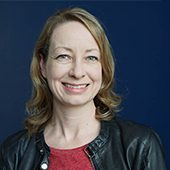 | Karis Shearer | University of British Columbia-Okanagan | Karis Shearer has published widely on book history, editorial theory, and women's cultural production. Her most recent publication, co-edited with Deanna Fong, is Wanting Everything: The Collected Works of Gladys Hindmarch (Talonbooks 2020). She is Associate Professor of English, Principal's Research Chair in Digital Arts and Humanities at UBC (Okanagan), and Director of the AMP Lab, a digital humanities lab at UBCO. | Session 1.3 (1:15-3:00 PDT): Project Showcase Session 3.1 (9:30-11:00 PDT): Theories of Digital Collaboration |
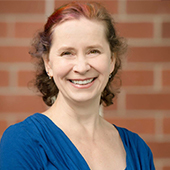 | Karyn Huenemann | Simon Fraser University | Karyn Huenemann is the project manager for the revision and expansion of the Canada's Early Women Writers database project at Simon Fraser University; she has been working with Carole Gerson on the project since its inception in 2010. In addition to her work with CEWW, she has published on topics in early Canadian literature, children's literature, and the literature of British India. | Session 1.3 (1:15-3:00 PDT): Project Showcase |
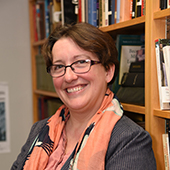 | Kate Holland | University of Toronto | Kate Holland is Associate Professor of Russian Literature at the University of Toronto. Her research centres on nineteenth century Russian prose and narrative theory. She is author of The Novel in the Age of Disintegration: Dostoevsky and the Problem of Genre in the 1870s (2013), and co-editor (with Katherine Bowers) of A Dostoevskii Companion: Texts and Contexts (2018) and Dostoevsky at 200: The Novel in Modernity (forthcoming, 2021). She and Bowers received a SSHRC Insight Grant for their project, Digital Dostoevsky, which will use XML encoding to analyze the Russian writer's novels. | Session 4.1 (9:30-11:00 PDT): Textual Collaborations |
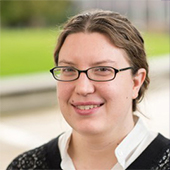 | Katherine Bowers | University of British Columbia-Vancouver | Katherine Bowers is Associate Professor of Slavic Studies in the Department of Central, Eastern, and Northern European Studies at the University of British Columbia. Her research focus is 19th-century Russian literature, with a particular emphasis on genre, form, and narrative. Her first monograph, Writing Fear: Russian Realism and the Gothic , is forthcoming with University of Toronto Press. | Session 1.2 (11:00-12:15 PDT): Roundtable: The Data-Sitters Club: A Colloquial, Comprehensive, Collaborative Guide to Computational Text Analysis Session 4.1 (9:30-11:00 PDT): Textual Collaborations |
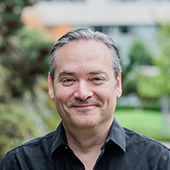 | Kevin Fisher | University of British Columbia-Vancouver | Kevin Fisher is an anthropological archaeologist interested in the relationship between people and their built environments, urbanism and the social dynamics of ancient cities, and the application of remote sensing and digital technologies for recording, analyzing and visualizing archaeological phenomena. He is Co-director of the Kalavasos and Maroni Built Environments (KAMBE) Project, an interdisciplinary investigation of the relationship between urban landscapes, interaction and social change on Late Bronze Age Cyprus (c. 1700-1100 BCE). | Session 3.3 (1:45-3:15 PDT): Digital Exhibitions Session 4.2 (11:15-12:30 PDT): Spatial Digital Humanities |
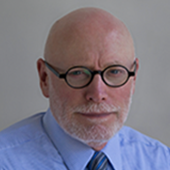 | Kevin Madill | University of British Columbia | Kevin Madill is Music Librarian at the University of British Columbia (UBC). He holds a Master of Library and Information Studies (MLIS) from UBC, a BMus (Honors, Theory and Composition) from Western University, as well as an MFA and BFA from UBC. He is experienced working as a library administrator, library manager, and liaison/collections librarian in academic and special libraries in the United States and Canada including the Museum of Modern Art, New York, and Pratt Institute, Brooklyn. | Session 3.3 (1:45-3:15 PDT): Digital Exhibitions |
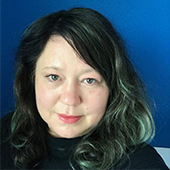 | Kristina McDavid | University of British Columbia-Vancouver | Kristina McDavid is a librarian at UBC, where she works with the MDUndergraduate Program. She recently completed a 3-year secondment as Executive Director for the Council of Prairie and Pacific University Libraries. She is currently co-investigator on a STOREE (Supporting Transparent and Open Research Engagement and Exchange) Project study relating to information professionals and knowledge exchange and is a member of the Making Research Accessible Initiative (MRAi). | Session 1.3 (1:15-3:00 PDT): Project Showcase |
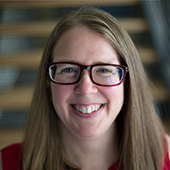 | Lee Skallerup Bessette | Georgetown University | Lee Skallerup Bessette has been interested in digital tools for learning since her dad brought home a Vic 20 when she was a kid. She now works with faculty on incorporating digital pedagogy and tools into their teaching as well as online course design. She tweets prolifically at @readywriting and you can read more about her work at readywriting.org | Session 1.2 (11:00-12:15 PDT): Roundtable: The Data-Sitters Club: A Colloquial, Comprehensive, Collaborative Guide to Computational Text Analysis |
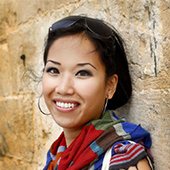 | Lindsey Der | University of British Columbia-Vancouver | Lindsay Der is an assistant professor of Anthropology and the PI of Disruptive Technologies and Negative Heritage. She is also a researcher with the Çatalhöyük Research Project where she works with the figurines team. Her research investigates changing human-animal relationships through time and their role in the social organization and maintenance of the Neolithic tell of Çatalhöyük, Turkey. Her research interests include cultural heritage, human-animal relationships, ritual and symbolism, iconography, archaeology and ethics, Geographic Information Systems (GIS), and public archaeology. | Session 4.2 (11:15-12:30 PDT): Spatial Digital Humanities |
 | Luke Bergmann | University of British Columbia-Vancouver | Session 4.2 (11:15-12:30 PDT): Spatial Digital Humanities | |
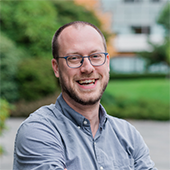 | M. Willis Monroe | University of British Columbia-Vancouver | M. Willis Monroe serves as the managing editor of the Database of Religious History, based in the Asian Studies department at the University of British Columbia. His research focuses on the history of science and religion in the ancient Middle East, particularly the interplay between astrology and astronomy in Babylonian culture. As the managing editor for the DRH he guides the projects academic and technical development as well as performs editorial oversight for the collection of data and recruitment of scholars. | Session 1.3 (1:15-3:00 PDT): Project Showcase |
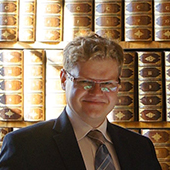 | Marcin Konik | The Fryderyk Chopin Institute | Marcin Konik is a graduate of philosophy and musicology and head of the Library Department at The Fryderyk Chopin Institute in Warsaw. He obtained his doctorate on the basis of a dissertation devoted to cosmological threads in medieval treatises on music theory. He completed internships at prestigious research centers: Jacob's School of Music at Indiana University in Bloomington and at the Music Department at Stanford University. In his research, he focuses on the issues of computerized music analysis, music databases and digitization projects. | Session 3.2 (11:15-12:45 PDT): Collaborative Building of Digital Tools for Music Scholarship |
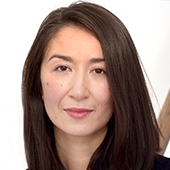 | Maria Sachiko Cecire | Bard College | Maria Sachiko Cecire is the founding Director of the academic concentration and Center for Experimental Humanities, which focus on how technology mediates what it means to be human. Her publications include Re-Enchanted: The Rise of Children’s Fantasy Literature in the 20th Century (University of Minnesota Press, 2019) and Space and Place in Children's Literature, 1789-Present (Routledge, 2015, as co-editor). I'm a National Project Scholar for the American Library Association’s Great Stories Club, a reading and discussion program for underserved teens, and am working on a research project based on GSC survey data. | Session 1.2 (11:00-12:15 PDT): Roundtable: The Data-Sitters Club: A Colloquial, Comprehensive, Collaborative Guide to Computational Text Analysis |
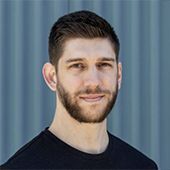 | Mark Goodwin | University of British Columbia-Vancouver | As the Metadata Coordinator for the Geodisy project, Mark Goodwin works alongside Portage’s Federated Research Data Repository (FRDR) team to provide expertise for creation, management, and presentation of metadata for geospatial discovery. He is the Co-Chair of Portage’s Dataverse North Metadata Working Group, which establishes metadata best practices for Canadian researchers using Dataverse. Mark is passionate about improving access to information and is excited to help enhance discoverability of research data in Canada. | Session 1.4 (3:15-4:30 PDT): Geospatial Discovery and Data |
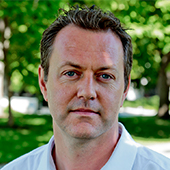 | Mark Turin | University of British Columbia-Vancouver | Mark Turin is an Associate Professor at the University of British Columbia. He is cross-appointed between the Institute for Critical Indigenous Studies and the Department of Anthropology. Mark writes and teaches on language reclamation, revitalization, documentation and conservation; language mapping, policies, politics and language rights; orality, archives, digital tools and technology. Indigenous methodologies and decolonial practice inform and shape his teaching and research. He is the author or co-author of four books, the editor of 12 volumes, and he edits a series on oral literature. | Session 2.2 (11:00-12:15 PDT): Collaboration Works Two Ways: Data Sovereignty and Representation in Indigenous-focussed Digital Humanities |
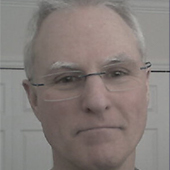 | Martin Holmes | University of Victoria | Martin Holmes has a BA in English and an MPhil for research in phonology from the University of Manchester, and the RSA Dip TEFLA. He taught English in the UK, Japan, Indonesia and Saudi Arabia before settling in Canada, where he has worked for over 20 years as a Programmer/Consultant at the University of Victoria Humanities Computing and Media Centre. He specializes in digital edition projects based on TEI XML encoding, and has served on the TEI Technical Council and as Managing Editor of the Journal of the TEI. | Session 4.1 (9:30-11:00 PDT): Textual Collaborations |
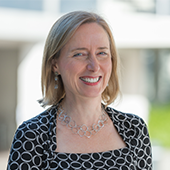 | Mary Chapman | University of British Columbia-Vancouver | Mary Chapman is the Academic Director of the UBC-V Public Humanities Hub, Professor in English, and Director of the Winnifred Eaton Archive. | Session 1.1 (9:30-10:45 PDT): Designing for Difference |
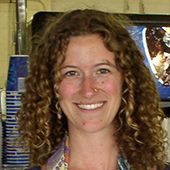 | Maya Daurio | University of British Columbia-Vancouver | Maya Daurio is a PhD student in Anthropology at the University of British Columbia where her research uses cartography to articulate how hybrid spaces of belonging and identity are mediated by language in the urban settings of Kathmandu and New York City. | Session 2.2 (11:00-12:15 PDT): Collaboration Works Two Ways: Data Sovereignty and Representation in Indigenous-focussed Digital Humanities |
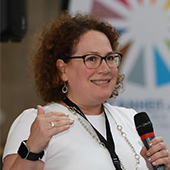 | Megan Meredith-Lobay | University of British Columbia-Vancouver | Megan Meredith-Lobay is the digital humanities and social sciences analyst for ARC at UBC. In addition, Megan serves on the Compute Canada Humanities and Social Sciences National Team as well as the Software Carpentry National Team. She holds a PhD from the University of Cambridge in Archaeology where she used a variety of computing resources to investigate ritual landscapes in Late Iron Age/Early Medieval Scotland. Megan worked at the University of Alberta where she supported research computing for the Faculty of Arts, and at the University of Oxford where she was the programme coordinator for Digital Social Research, an Economic and Social Research Council project to promote advanced ICT in Social Science research. | Session 3.1 (9:30-11:00 PDT): Theories of Digital Collaboration |
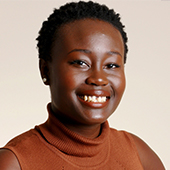 | Melissa Nelson | Independent | Melissa Nelson holds a B.A. (Hons) in History with a minor in Sociology from Carleton University. She also completed a Master of Information Studies degree at McGill University. Melissa aspires to work as an archivist. Her experience includes providing archival support for George Brown College, The Presbyterian Church in Canada, and the Law Society of Ontario. | Session 3.3 (1:45-3:15 PDT): Digital Exhibitions |
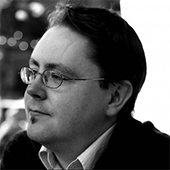 | Michael Joyce | Simon Fraser University | Michael Joyce enjoys writing software that talks to other software because he’s bad at talking to people and doesn’t understand apostrophes. He brings 15 years of digital humanities and web application development to the DHIL, including working as Web and Data Services Developer for the Bennett Library, a Programmer Analyst for UBC Mathematics, and a Web Developer at the Electronic Textual Culture Lab at UVic. He hates spreadsheets and loves highly structured databases. | Session 2.4 (2:45-4:45 PDT): Collaboration Roundtable |
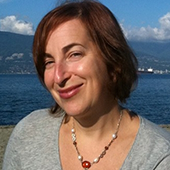 | Michelle Levy | Simon Fraser University | Michelle Levy is a Professor in the Department of English at Simon Fraser University. Her research focuses on women’s writing and their engagement with literary culture in the late eighteenth and early nineteenth centuries. She considers the history of manuscript and print in this period, and works on remediating bibliographical information in digital forms in her Women’s Print History Project. | Session 2.4 (2:45-4:45 PDT): Collaboration Roundtable |
 | Nick Lally | Session 4.2 (11:15-12:30 PDT): Spatial Digital Humanities | ||
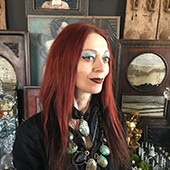 | Nicola Levell | University of British Columbia-Vancouver | Nicola Levell is an associate professor of museum and visual anthropology at UBC Vancouver, an independent curator, and a Public Humanities Hub Fellow (2020). Her research focuses on exhibitions, public/performing art, and artists. She has curated exhibitions and art installations in the UK, Portugal, the USA, and Canada. Her most recent exhibition is the award-winning, Shadows, Strings & Other Things: The Enchanting Theatre of Puppets. | Session 3.3 (1:45-3:15 PDT): Digital Exhibitions |
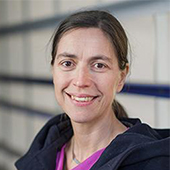 | Paige Raibmon | University of British Columbia-Vancouver | Paige Raibmon is a professor of history and a settler scholar. She is editor of BC Studies and was recently a CIFAR Fellow (2015-2019). Her research engages a range of questions united by her interest in Indigenous peoples’ endurance and resurgence in the face of settler colonialism’s historical workings and on-going implications. She has particular interests in the digital humanities, collaborative methodology, and oral history. With Elsie Paul, Davis McKenzie, and Harmony Johnson, she is a co-author of the open access digital book As I Remember It. | Session 2.3 (1:15-2:30 PDT): Relationality, Respect, and Humility on the Internet: Digital Space as Indigenous Territory |
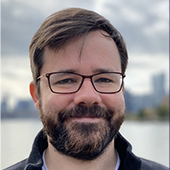 | Patrick Moran | University of British Columbia-Vancouver | Patrick Moran is a specialist of medieval French literature at UBC. His research deals with 11th-13th c. narrative genres and focuses on the intersection of narrative theory, cognitive studies and material philology. He also writes on modern fantasy fiction. He is the author of Lectures cycliques: le réseau inter-romanesque dans les cycles du Graal du XIIIe siècle (Honoré Champion, 2014) and The Canons of Fantasy: Lands of High Adventure (CUP, 2019). His current SSHRC-funded project studies the emergence and differentiation of narrative genres in early medieval literature. | Session 1.3 (1:15-3:00 PDT): Project Showcase |
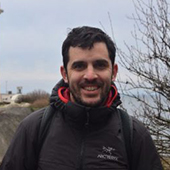 | Paul Dante | University of British Columbia-Vancouver | Paul Dante actively creates an open source data pipeline to help researchers find and access geospatial and quasi-geospatial data. Tying together existing components with a custom written Java middleware that cleans and enhances existing metadata, this project will help make Canadian research data more easily accessible. | Session 1.4 (3:15-4:30 PDT): Geospatial Discovery and Data |
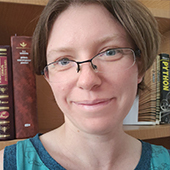 | Quinn Dombrowski | Stanford University | Quinn Dombrowski supports DH work in non-English languages in the Division of Literatures, Cultures, and Languages at Stanford University. Prior to coming to Stanford, she helped build a digital humanities program at UC Berkeley, and worked on the famously ill-fated DH cyberinfrastructure initiative Project Bamboo at the University of Chicago. Quinn holds a BA/MA in Slavic Linguistics from the University of Chicago and MLIS from the University of Illinois. | Session 1.2 (11:00-12:15 PDT): Roundtable: The Data-Sitters Club: A Colloquial, Comprehensive, Collaborative Guide to Computational Text Analysis |
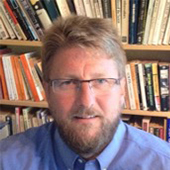 | Ray Siemens | University of Victoria | Ray Siemens directs the Electronic Textual Cultures Lab, Implementing New Knowledge Environments Partnership, and Digital Humanities Summer Institute. He is Distinguished Professor in the UVic Faculty of Humanities, U Newcastle Global Innovation Chair in Digital Humanities (2019-22), and past Canada Research Chair in Humanities Computing (2004-15). In 2019-20 he was also Leverhulme Visiting Professor at Loughborough U. | Session 3.1 (9:30-11:00 PDT): Theories of Digital Collaboration |
 | Rémi Castonguay | Simon Fraser University | Session 2.4 (2:45-4:45 PDT): Collaboration Roundtable | |
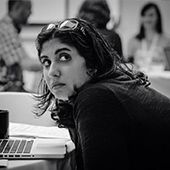 | Roopika Risam | Salem State University | Roopika Risam is Chair and Associate Professor of Secondary and Higher Education and English at Salem State University. Her research interests lie at the intersections of digital humanities, African diaspora and postcolonial studies, humanities knowledge infrastructures, and higher education. Risam is the author of New Digital Worlds: Postcolonial Digital Humanities in Theory, Praxis, and Pedagogy (Northwestern UP). | Session 1.2 (11:00-12:15 PDT): Roundtable: The Data-Sitters Club: A Colloquial, Comprehensive, Collaborative Guide to Computational Text Analysis |
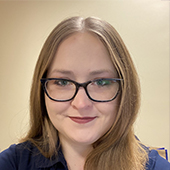 | Sarah Dupont | University of British Columbia-Vancouver | Sarah Dupont is the Head Librarian of the X̱wi7x̱wa Library at The University of British Columbia (UBC). In addition to administrative, collections, and strategic work on Indigenous initiatives, she was the Indigitization Program Manager Librarian from 2012-2020. Sarah previously served as the UBC iSchool’s First Nations Curriculum Concentration coordinator and co-taught Information Practice and Protocol in Support of Indigenous Initiatives there. She is the Council of Prairie and Pacific University Libraries’ (COPPUL) Chair of the Indigenous Knowledge Standing Committee and the British Columbia Library Association’s First Nations Interest Group Convenor. Sarah has Métis-settler heritage and uses she/her pronouns. | Session 2.2 (11:00-12:15 PDT): Collaboration Works Two Ways: Data Sovereignty and Representation in Indigenous-focussed Digital Humanities |
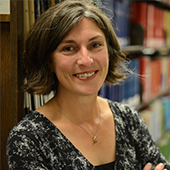 | Sarah Ketchley | University of Washington | Sarah Ketchley is an Egyptologist and art history scholar in the Department of Near Eastern Languages & Civilization at the University of Washington, where she teaches introductory and graduate-level classes in digital humanities. She is also an Adjunct Associate Professor in the School of Humanities and Philosophy at the University of Maryland Global Campus. She is co-director of Newbook Digital Texts, a digital humanities publishing house offering students from all disciplines at the UW the unique opportunity to transcribe and encode unpublished primary source material from the Near East. | Session 4.1 (9:30-11:00 PDT): Textual Collaborations |
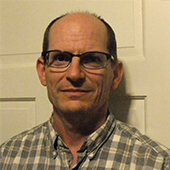 | Stewart Arneil | University of Victoria | Stewart Arneil holds an M.A. in computational theory and certificates in Instructional Design and Project Management. He has 30 years experience planning, writing code for, and managing digital research and instructional projects in the private, institutional and educational sectors. Current projects include being a co-chair of the archival database cluster and technical advisor to the Landscapes of Injustice project and a member of the Endings project which seeks to provide information and examples on building technically sustainable DH projects. | Session 2.4 (2:45-4:45 PDT): Collaboration Roundtable |
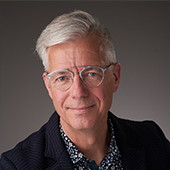 | T. Patrick Carrabré | University of British Columbia-Vancouver | T. Patrick Carrabré is director of the UBC School of Music and Chan Centre for the Performing Arts. Construction of identity and community engagement are long-term themes in his compositions, concert and radio programming, and administrative activities. For well over a decade, he worked closely with the Winnipeg Symphony Orchestra, including six seasons as composer-in-residence and co-curator of the orchestra’s New Music Festival. Also active in the media, Carrabré served two-seasons as the weekend host of CBC Radio 2’s contemporary music show The Signal. His best known works include Inuit Games, for throat singers (katajjak) and orchestra, which was a recommended work at the International Rostrum of Composers (2003), Sonata No. 1, The Penitent, for violin and piano, and From the Dark Reaches, which were nominated for JUNO awards (in the category of Best Classical Composition). A Hammer For Your Thoughts… won a Western Canadian Music Award (Best Classical Composition). | Session 3.2 (11:15-12:45 PDT): Collaborative Building of Digital Tools for Music Scholarship |
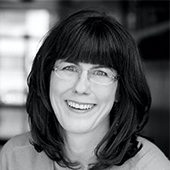 | Tara McPherson | University of Southern California | Tara McPherson is Chair and Professor of Cinema + Media Studies at the University of Southern California’s School of Cinematic Arts and Director of the Sidney Harman Academy for Polymathic Studies. She is a core faculty member of the IMAP program, USC’s innovative practice based-Ph.D. Her most recent book, Feminist in a Software Lab, was published by Harvard University Press in 2018, and she is author or editor of four other volumes. She was founding editor of the experimental journal Vectors and was the first lead PI for the online platform, Scalar. | Session 1.1 (9:30-10:45 PDT): Designing for Difference |
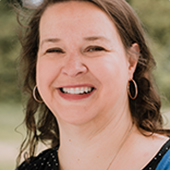 | Tricia Logan | University of British Columbia-Vancouver | Tricia Logan is the head of Research and Engagement at the Residential School History and Dialogue Centre and is cross-appointed as an Assistant Professor at the UBC School of lnformation. She joined the Centre in January 2019, and has held roles at the National Centre for Truth and Reconciliation, the Canadian Museum for Human Rights, the National Aboriginal Health Organization and the Aboriginal Healing Foundation. Tricia has worked with Survivors of residential schools, completed research on the Métis experience in residential schools, and worked on a Michif language revitalization project. | Session 2.2 (11:00-12:15 PDT): Collaboration Works Two Ways: Data Sovereignty and Representation in Indigenous-focussed Digital Humanities |
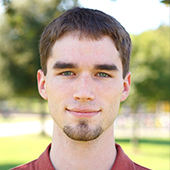 | William Dorner | University of Central Florida | Will Dorner earned a Ph.D. in Texts & Technology from the University of Central Florida in 2015. Influenced by his digitization work with the Charles Brockden Brown Electronic Archive and Scholarly Edition, he employed some of the same approaches and technologies in digitizing a late-18th-century English translation of Virgil's Aeneid to demonstrate techniques for digital preservation and interpretation, particularly analysis of poetic and rhetorical figures. For Johnson's Dictionary Online Project, he contributes ideas and strategies for text processing and transformation for online display. | Session 1.3 (1:15-3:00 PDT): Project Showcase |